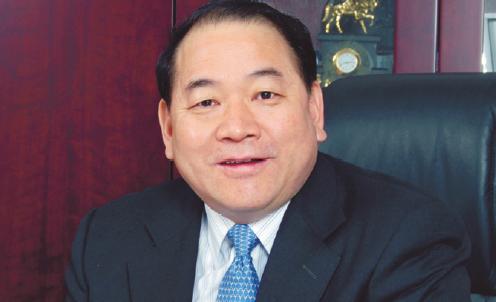|
 |
|
Ma Chunji, chairman of Sinotruk.[Photo provided to China Daily]
|
The company has a complete product portfolio that includes heavy-, medium- and light-duty trucks, vans, special-purpose vehicles and construction machinery, and four brands: Sitrak, Howo, Steyr and Hohan.
Its product lineup for heavy trucks alone has grown from one series and 78 types in 2001 to nine series and more than 3,000 types.
Ma said Sinotruk has built a global market network in 96 countries and regions supported by more than 1,000 overseas after-sales service outlets.
It also has six overseas branches to serve markets in Southeast Asia, Australia, Africa, the Middle East, Central Asia and Russia, Central and South America, as well as Hong Kong, Macao and Taiwan.
To enhance the company's localization capabilities, Sinotruk has built knock-down factories, which refers to the auto parts needed to assemble a unit-in six countries such as Nigeria, Morocco and Malaysia.
In May 2014, Sinotruk signed a $100-million deal with Africa's industrial giant Dangote Group for a new assembly plant in Lagos, Nigeria, with an annual production capacity of 5,000 heavy-duty trucks.
It is the fourth plant Sinotruk has established in Africa.
The deal was signed during Premier Li Keqiang's first visit to Africa since taking office in 2013.
In April 2015, the company reached an agreement with the China-Africa Development Fund to jointly invest $133 million to build truck assembly plants and service network of auto accessories in major African markets.
After exploring overseas markets for 11 years, Sinotruk has more than 30 of its 96 export markets in Africa, where about 12,000 vehicles are sold every year.
At a working conference held on Jan 3, Ma put forward new goals for Sinotruk to achieve by the end of the 13th Five-Year Plan (2016-20), one of which is to increase the company's export proportion to 50 percent of total sales.
To reach that goal, the company is expanding its businesses into high-end overseas markets such as Australia, Singapore, New Zealand and Eastern Europe.
"We have mainly concentrated on developing third-world markets over the past decade and now are trying to tap into high-end markets in developed countries and regions," Ma said.
"If we want to become a global commercial automobile giant, we need to make high-end vehicles to enter developed countries."
Sinotruk has adjusted its production lines in recent years and opened a 3S (sale, spare parts and services) shop last September in Auckland, New Zealand. The company will also grab opportunities brought by China's ongoing Belt and Road Initiative to bring more products to countries along the routes, Ma said.
|